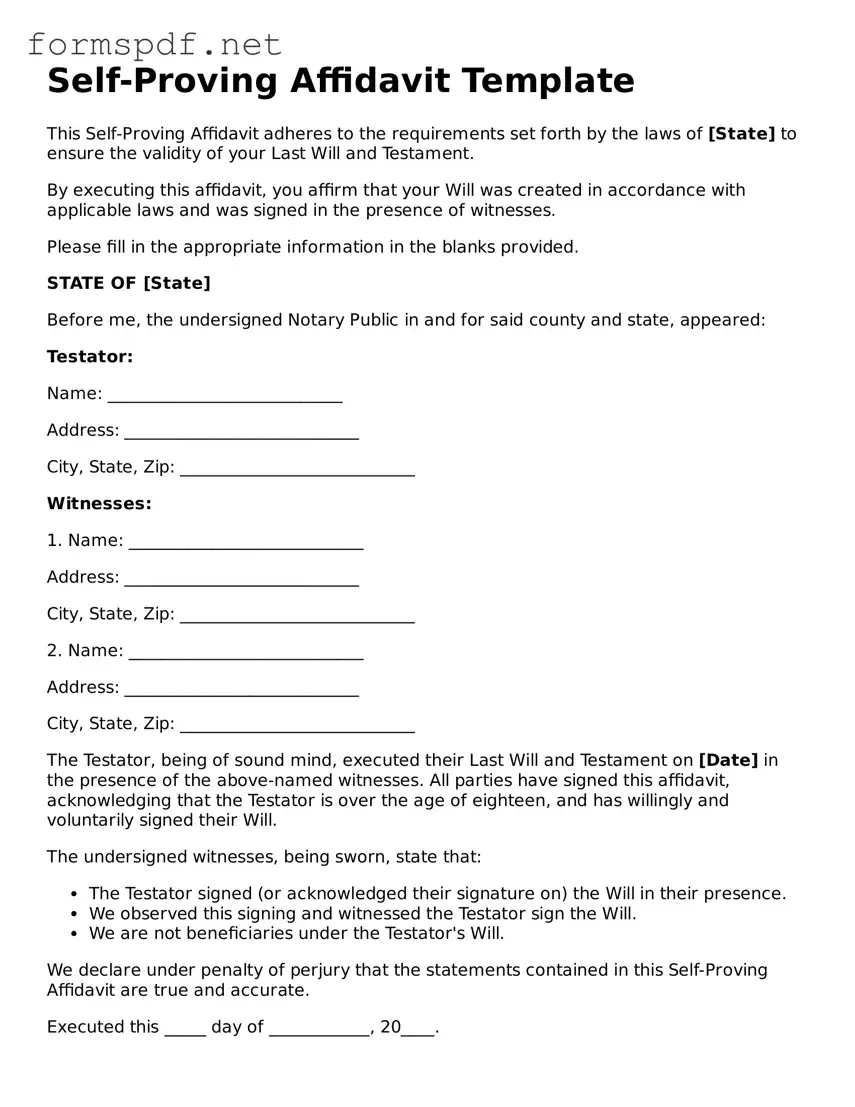Fillable Self-Proving Affidavit Form
A Self-Proving Affidavit is a legal document that allows a testator’s will to be validated without the need for witnesses to testify in court. This form simplifies the probate process by providing a sworn statement from the witnesses affirming that they observed the testator sign the will. Understanding its importance can streamline the administration of an estate, making it easier for loved ones during a difficult time.
Ready to simplify your estate planning? Fill out the Self-Proving Affidavit form by clicking the button below.
Launch Editor Now

Fillable Self-Proving Affidavit Form
Launch Editor Now

Launch Editor Now
or
⇓ Self-Proving Affidavit PDF
Don’t leave without finishing the form
Finish your Self-Proving Affidavit online and download the final version.